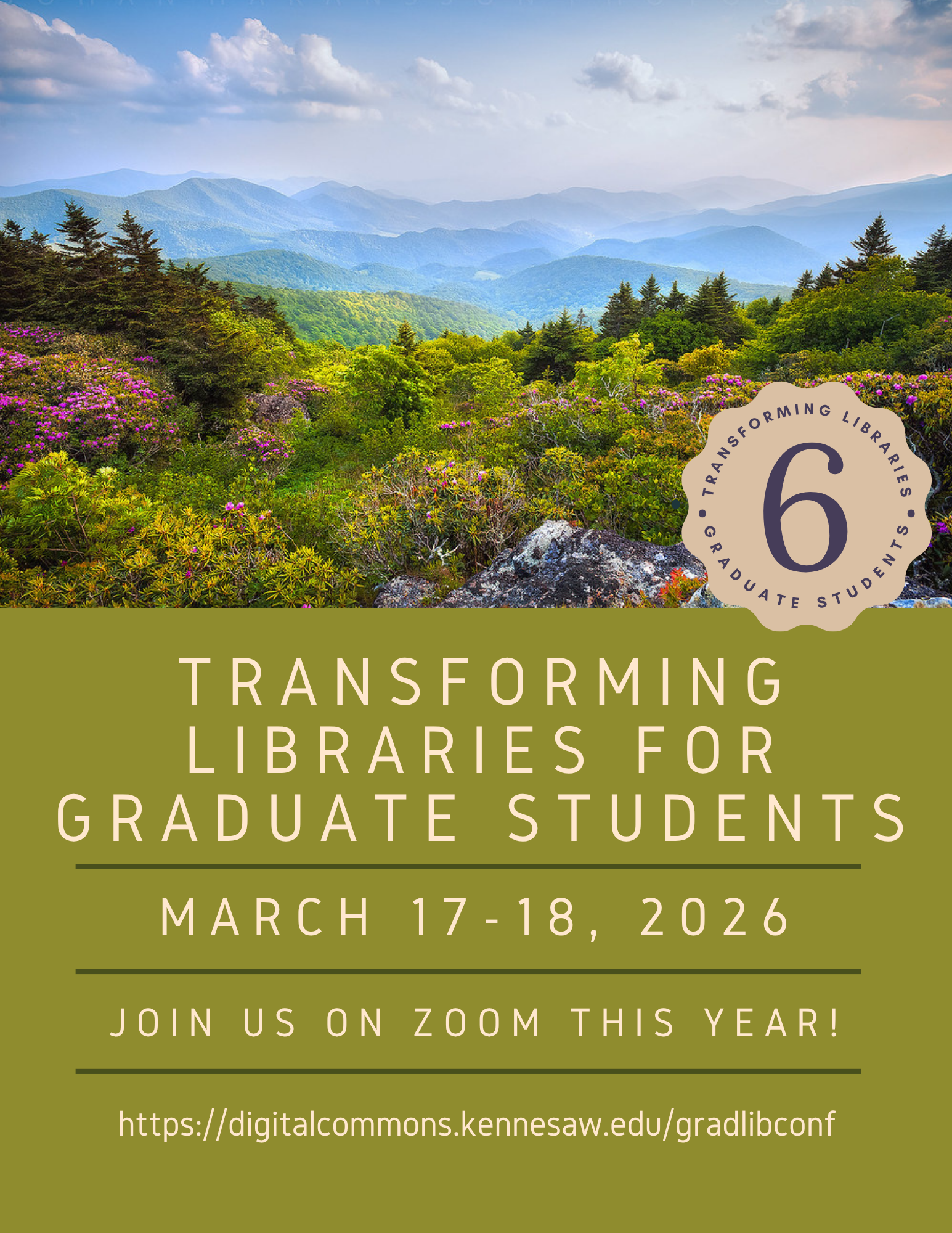Start Date
3-22-2018 11:00 AM
End Date
3-22-2018 11:30 AM
Description of Proposal
As scholarly communication continues its digitally driven shift away from a publishing model rooted in print culture, it is essential that the academic library maintain its impact by keeping in step with rapidly changing expectations and practices. As future faculty, today’s graduate students must learn the skills to carefully evaluate publishers, consider copyright in a digital environment, use information ethically and responsibly, and avoid unscrupulous vendors and publishers who prey on those who must “publish or perish.” While they develop knowledge in their respective fields, they cannot afford to be unaware of both the opportunities and pitfalls of modern scholarly communication. This presentation will discuss the steps a mid-size regional state university has taken to meet the needs of its graduate students who are planning to contribute to the scholarship in their fields through research and publication. This began several years ago with the establishment of a digital collections archive to provide open access to the university’s master’s theses and doctoral dissertations. This increased distribution of the university’s scholarly output created a greater need for bibliographic instruction and outreach to the various departments in order to maintain the integrity of the scholarship. Citation analysis of past theses and dissertations were conducted in order to identify trends and needs. The findings were shared with the graduate school and teaching faculty and created a partnership which highlighted the necessity for increased campus-wide collaboration in developing a scholarly communication initiative.
Included in
Using Citation Analysis to Develop a Strategic Plan for a Campus-Wide Scholarly Communication Initiative
RM 462
As scholarly communication continues its digitally driven shift away from a publishing model rooted in print culture, it is essential that the academic library maintain its impact by keeping in step with rapidly changing expectations and practices. As future faculty, today’s graduate students must learn the skills to carefully evaluate publishers, consider copyright in a digital environment, use information ethically and responsibly, and avoid unscrupulous vendors and publishers who prey on those who must “publish or perish.” While they develop knowledge in their respective fields, they cannot afford to be unaware of both the opportunities and pitfalls of modern scholarly communication. This presentation will discuss the steps a mid-size regional state university has taken to meet the needs of its graduate students who are planning to contribute to the scholarship in their fields through research and publication. This began several years ago with the establishment of a digital collections archive to provide open access to the university’s master’s theses and doctoral dissertations. This increased distribution of the university’s scholarly output created a greater need for bibliographic instruction and outreach to the various departments in order to maintain the integrity of the scholarship. Citation analysis of past theses and dissertations were conducted in order to identify trends and needs. The findings were shared with the graduate school and teaching faculty and created a partnership which highlighted the necessity for increased campus-wide collaboration in developing a scholarly communication initiative.


